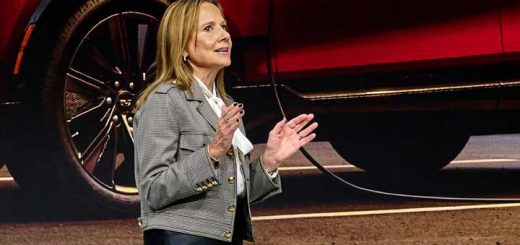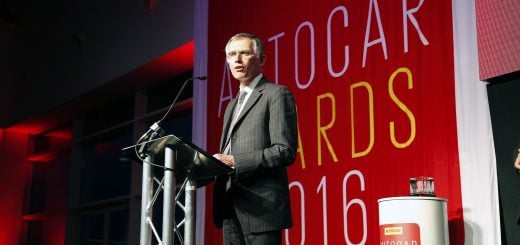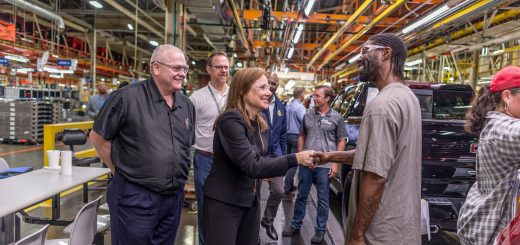Mary Barra may have arrived to her position as General Motors CEO at what may be the worst time imaginable, but right now she seems to be the best person for the job. After the world learned of GM’s mishandling of an ignition switch recall for the Chevrolet Cobalt and similar cars in GM’s roster, it was obvious that GM needed to change with the times well beyond trimming the number of brands in its portfolio. “I’m not asking people to [change]. It’s a requirement − not only that they hold themselves accountable to do it, but that they hold others accountable.”
In the October 6, 2014 issue of Fortune, Barra is shown embracing the opportunity to make institutional change at GM. So many CEOs in the past have attempted to do the same thing, but instead of changing culture, “the culture won.” GM’s purchase of Ross Perot’s EDS in 1984 is a famous example of the internal culture’s “most damaging elements.” To wit, “[CEO Roger] Smith told me he’d tried everything to change the culture, without success, and now these high-performing EDS people would bring their culture to every part of GM,” recalled investment banker Ken Langone, who worked on the EDS deal. “Exactly the opposite happened. The GM culture took over EDS. By the time EDS was spun off from GM in 1996, it was bureaucratic and cost-laden.”
Barra may be the first CEO to actually gain traction with institutional change. Certainly GM’s survival depends on it after the ignition switch recalls. Here’s how it went down:
- Reports of several vehicles like the Cobalt whose airbags failed to deploy in some crashes, killing at least 13 people
- Failures seemingly stopped after the 2007 model year, later determined to be due to a redesigned ignition switch
- Reaction wasn’t to order for an immediate recall or a report to executives but, instead, an expert was hired
- Expert took 6 months to provide a report, who concluded that GM had been told by others for years: the ignition switch could easily be turned from “run” to “accessory” mode and disable the airbags
- Engineer in charge of investigation made similar conclusion from report and reported that to more committees
- Nine months later, a recall was issued − two years after GM knew about the problem and 12 years after the problem appeared
Under Barra’s watch, GM has begun moving from a less insular to a more proactive direction. Early on, she reduced the 10-page dress code to simply state “dress appropriately.” She’s embracing the recall debacle “because I think it uncovered some things in the company that it’s critical we challenge ourselves to change and to fix … We didn’t have to work too hard to make the case for change because clearly it was deeply troubling. Anytime you want to drive change, you have to have a catalyst for change, and it did provide that. I will also tell you it’s made me more impatient.”
Barra has instituted change by not doing things the old way. She has yet to implement a program or a 10-step program. And, nope, no committee(s) either − there was no accountability in the past because most decisions were made by committees. She’s tried to change behaviors by starting with her own. “Culture is how people behave,” she says. Ironic, considering she’s been working at GM for 39 years and has been indoctrinated in the system, but who better to make change than someone familiar and sensitive to the dysfunctions?
Ross Perot learned first-hand about the dysfunctions when GM bought his company, once saying that “the first EDSer to see a snake kills it. At GM, the first thing you do is to organize a committee on snakes. Then you bring in a consultant who knows a lot about snakes. Third thing you do is talk about it for a year.” But another billionaire − none other than Warren Buffett − thinks that Barra is up to the task. “Mary is as strong as they come. She is the person to have there. She’s as good as I’ve seen.”
In the ensuing months since the recall, Barra has fired 15 employees − an act that Fortune characterizes as “very unlike GM” − among other shakeups. She expects “directness, transparency, [and] candor” from her top team, saying “I’m not asking people to do it. It’s a requirement − not only that they hold themselves accountable to do it, but they hold each other accountable. That’s the message I’ve delivered and will continue to drive through the whole organization. This is not optional.”
Are the old-way days of GM over? Barra thinks so, saying, “This is a challenging business, and if you get 16 people in the room like my leadership team and you don’t get all the best thoughts onto the table, you may not be making the right decision. Everyone knows I expect them to get their thoughts on the table. It’s okay to have debates. It shouldn’t be personal or petty or mean. But it can be uncomfortable, because if we have different opinions, we’ve got to talk it through.”
She adds, “I never want to put this behind us. I want to put this painful experience permanently in our collective memories.”















No Comments yet